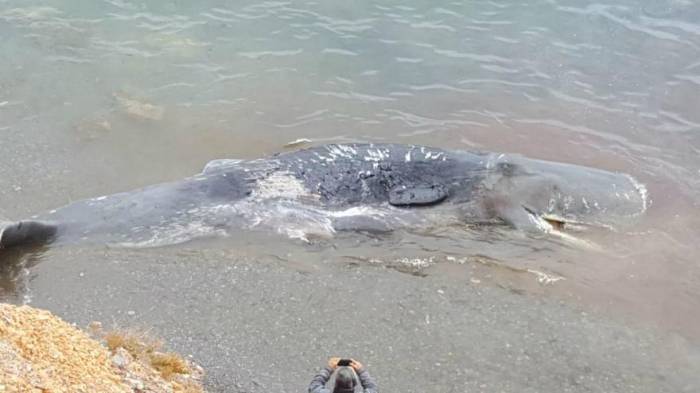A necropsy revealed the giant mammal had trash bags, ropes, pieces of net and a drum in its stomach and intestines.

Local authorities believe the animal died because of peritonitis — an inflammation of the abdominal lining since it was unable to expel the amount of plastic in its stomach.
As a result, the community of Murcia launched an awareness campaign to reduce the use of plastics and garbage left on beaches.
This is not the first time a sperm whale dies because of plastic indigestion, in 2013 a whale washed up on Granada’s coast with 18 kilos of plastic in its stomach.
“When marine animals eat plastic accidentally, the material accumulates in their digestive system and creates a false impression of satiety and reduce the amount of food they can ingest,” said Greenpeace Spain in a statement.
“When they don’t receive all the nutrients they need, the animals lose weight and weaken, reducing their capacity to survive.”
Whales are not the only victims of garbage pollution. According to Greenpeace, 40-60% of sea turtles eat plastic and for some bird species, this percentage can reach 93%.
“The presence of plastics in the sea and oceans are one of the biggest threats to the world’s ecosystem since so many animals end up trapped in garbage or digest big quantities of plastic that kill them,” said the general director for the government’s environment ministry in Murcia, Consuelo Rosauro.
More about:
















































